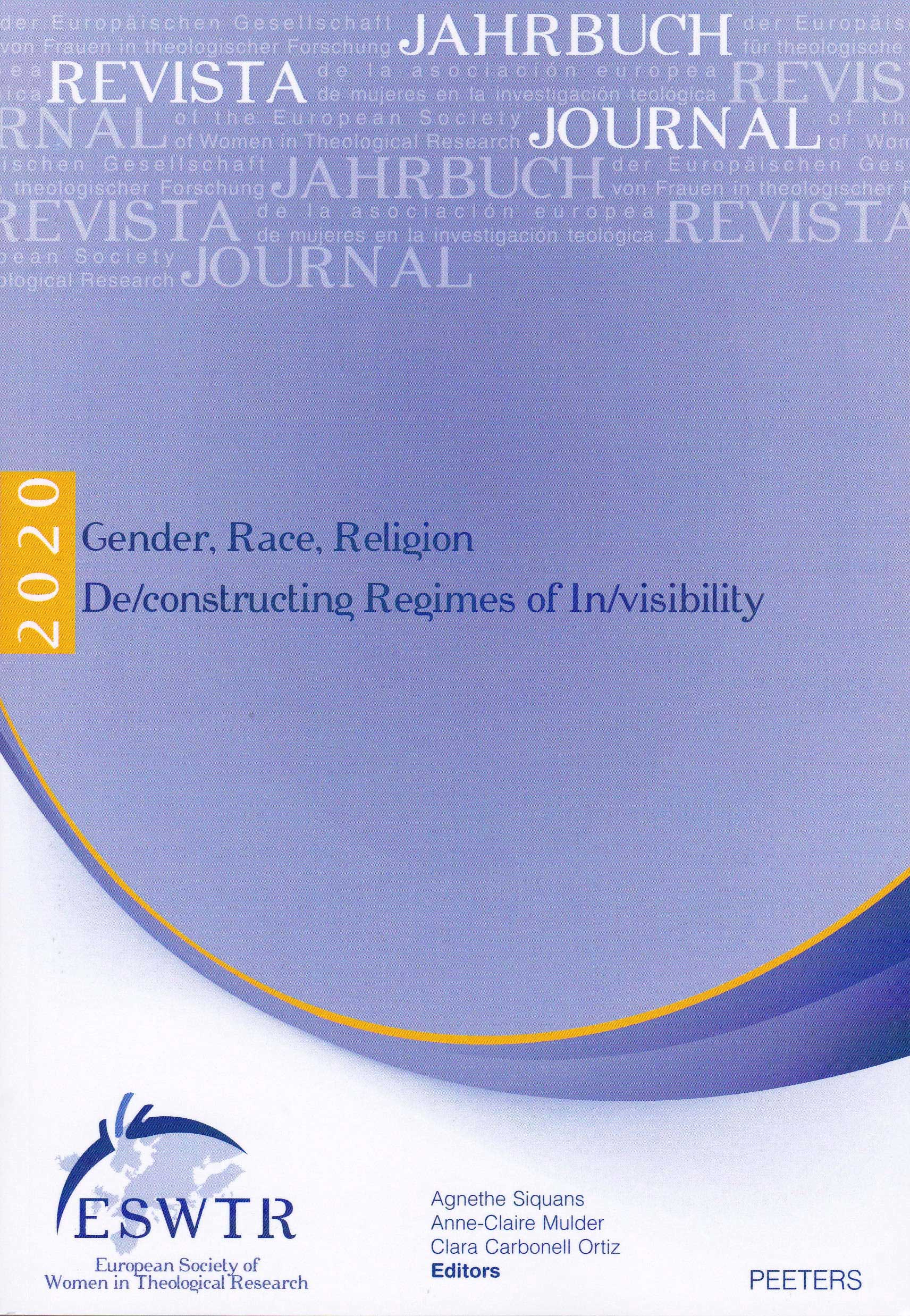Abstract:
Karin Hügel, "Queer Interpretations of the Commandments of Love in Leviticus".
The commandments of love in Leviticus – the one to love the neighbour in Lev 19:18 and the one to love the stranger in Lev 19:34 – are queerly interpreted in connection with three traditional ways of interpretation of the commandment to love the neighbour in the Holiness Code.
Firstly, the commandment of loving one's neighbour (Lev 19:18) can be translated in the following way: "You shall love your neighbour as you love (or: shall love) yourself". The neighbour shall be loved to the same extent as someone loves him- or herself. Such an understanding of this commandment presupposes self-love. However, the commandment of loving one's neighbour could also be regarded as an imperative to love oneself. Accusing individual queer people for example of lacking self-love could be considered as cynicism by the persons concerned if a self-determined sexual life is not possible for them. Loving oneself should be made easier for those people by creating an environment which sustains their ways of life and love. A loving attitude of various queer people towards themselves, in turn, has a positive impact on their interaction with other fellow human beings.
Secondly, the commandment of loving one's neighbour (Lev 19:18) can mean the following: "You shall love your neighbour for he is a human being like you". In the Jewish Enlightenment the Jewish poet, philologist and exegete Naphtali Herz Wessely created a new Jewish tradition of interpreting this commandment in Leviticus by theologically underpinning the equality of all human beings by recourse to the creation. However, from a present-day feminist and queer perspective, it is necessary to demand an inclusive reinterpretation of the biblical commandments to love neighbours and strangers so that the commandments of love in Leviticus can be understood as a call for respectful conduct also and especially towards women and diverse minorities like queer people.
Thirdly and finally, the commandment of loving one's neighbour (Lev 19:18) can be interpreted in the meaning of the negative Golden Rule as follows: "You shall love your neighbour so that, what is hateful to you, you shall not do to him". Already at the time of the composition of the Aramaic translation of Targum Pseudo-Jonathan the commandments of love in Leviticus have been considered as in need of explanation so that the negative Golden Rule has been woven into TPsJ on Lev 19:18 and on Lev 19:34. The Golden Rule was attributed not only to important rabbis like Hillel or Akiba but also to Jesus of Nazareth. Also the Golden Rule should be understood today – in contrast to antiquity – in an inclusive way and should be applied, including not only men but also women and queer people, in terms of ethics for a good coexistence of all human beings in this world.
Karin Hügel, "Queere Auslegungen der Liebesgebote aus Levitikus", in: Agnethe Siquans/Anne-Claire Mulder/Clara Carbonell Ortiz (eds.), Gender, Race, Religion: De/constructing Regimes of In/visibility, Journal of the European Society of Women in Theological Research/Revista de la asociación europea de mujeres en la investigación teológica/Jahrbuch der Europäischen Gesellschaft für theologische Forschung von Frauen, Volume 28, Peeters, Leuven 2020, 201-236.
Journal of ESWTR 28/2020
VI-286 pages,
ISBN: 978-90-429-4329-2,
ISSN: 1783-2454,
eISSN: 1783-2446,
EUR 50,00.
Abstract Peeters Online Journals
Peeters Online Journals
I gave lectures in German on "Queer Interpretations of the Commandments of Love in the Biblical Book Leviticus" ("Queere Auslegungen der Liebesgebote aus dem biblischen Buch Levitikus") at the
18th International Conference of the European Society of Women in Theological Research "Gender, Race, Religion, De/Constructing Regimes of In/Visibility" on September 13, 2019 at the Catholic University of Leuven, Belgium, at the 7th Annual Conference of the Gender Studies Association Austria "Gender and Gender Relations in Transformation: Spaces – Relations – Representations" on November 8, 2019 at the University of Innsbruck, Austria and at the Study day of the student body of the Department of Protestant Theology on the topic "Feminist* Theologies" on June 29, 2021 at the University of Tübingen, Germany. Under the heading Parashot queerly read: Queer Interpretations of the Commandments of Love in Leviticus an interactive lecture of me has been presented in German, organised by Keshet Germany, on March 6, 2022 in Berlin.

Hillel teaches the Golden Rule, Knesset Menorah, Jerusalem.

Cosimo Rosselli, Jesus' Sermon on the Mount 1481/82, Sistine Chapel, Vatican.
Abstract: The Sin of Sodom as Hatred of Foreigners in the Book of Wisdom 19:13–17
Abstract: Jewish Legal Interpretations of Female Homoeroticism
Abstract: Readings for Blessing Ceremonies of Same-Sex Couples Queerly Interpreted
Abstract: King Davidʼs Exposure while Dancing: A Queer Reading of 2 Samuel 6
Abstract: Queer Appropriations of David and Goliath: Artistic Self-portraits as Defeated Pederasts
Abstract: A Queer Reading of Qohelet 4,9-12
Abstract: Queer Readings of the Song of Songs
Abstract: A Queer Reading of Joseph
Back to publications



